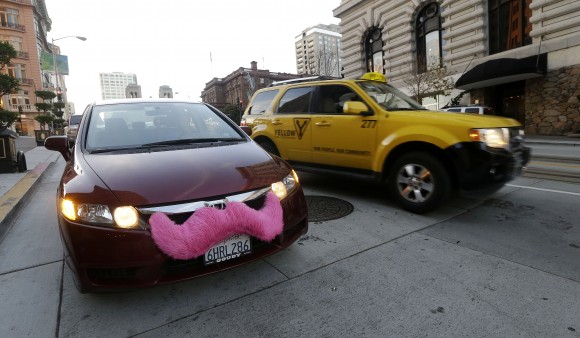The California Labor Commissioner’s Office has filed separate lawsuits against transportation companies Uber and Lyft for committing wage theft by misclassifying employees as independent contractors.
Uber and Lyft have misclassified their drivers, which has deprived these workers of a host of legal protections in violation of California labor law, according to the lawsuits.
A Lyft spokesman said the company has yet to be served the lawsuit, but offered the following statement:
“The vast majority of California drivers want to work independently, and we’ve already made significant changes to our app to ensure that remains the case under state law. When 3 million Californians are without a job, our leaders should be focused on creating work, not trying to shut down an entire industry.”
Uber spokespersons have also been reached out to for comment.
California Attorney General Xavier Becerra and the city attorneys of Los Angeles, San Diego, and San Francisco, in May sued Uber and Lyft for misclassifying their drivers as independent contractors in violation of the law.
The goal of the latest lawsuits is to enforce California labor laws and to ensure that drivers are not misclassified as independent contractors, according the suits.
In 2018, the California Supreme Court’s Dynamex ruling established the “ABC test” for determining whether a worker is an employee under various California labor laws. Assembly Bill 5, which went into effect on Jan., extended the ABC test to additional California labor laws. Under the ABC test, workers are considered employees unless they are free from control from the hiring entity, perform work outside of the hiring entity’s usual business, and engage in an independently established trade or occupation.
The lawsuits seek to recover amounts owed to all of Uber’s and Lyft’s drivers, including the nearly 5,000 drivers who have filed claims for owed wages with the Labor Commissioner’s Office. Moreover, the lawsuits seek recovery for a wider range of statutory violations and damages than those asserted in individual wage claims and other lawsuits.
“The Uber and Lyft business model rests on the misclassification of drivers as independent contractors,” California Labor Commissioner Lilia García-Brower said in a statement. “This leaves workers without protections such as paid sick leave and reimbursement of drivers’ expenses, as well as overtime and minimum wages.”
The lawsuits allege that by misclassifying workers, Uber and Lyft failed to meet their obligations as employers as required by California labor law—including to pay drivers at least minimum wage for all hours worked, to pay overtime compensation, to provide paid rest periods, to reimburse drivers for the cost of all equipment and supplies needed to perform their work and for work-related personal vehicle mileage.
The suits also allege the companies failed to provide paid sick leave, to provide accurate itemized wage deduction statements, to timely pay all wages owed during and upon separation of employment, and to provide notice of employment-related information required by law.
The lawsuits, filed in Alameda County Superior Court, ask the court to order Uber and Lyft to stop misclassifying their employees and provide the protections available to all employees under the Labor Code. The suits also seek the recovery of unpaid wages, penalties and interest as well as civil penalties and any costs and reasonable attorneys’ fees incurred by the Labor Commissioner’s Office.
The Labor Commissioner’s Office estimates that Uber and Lyft each employ more than 100,000 drivers. Amounts collected by the Labor Commissioner for unpaid wages, liquidated damages owed to workers, penalties owed to workers, and reimbursement of business expenses owed to workers, will be distributed to all drivers who worked for Uber or Lyft during the time period covered by this lawsuit, not just to those drivers who filed individual claims with the Labor Commissioner.
Related:
- Massachusetts Sues Uber, Lyft to Classify Drivers as Employees
- California Wants Judge to Force Uber, Lyft to Classify Drivers as Employees
- California Attorney General and City Attorneys Sue Uber, Lyft for Worker Misclassification
Topics Lawsuits California Fraud Contractors Sharing Economy Ridesharing
Was this article valuable?
Here are more articles you may enjoy.



 Florida’s Commercial Clearinghouse Bill Stirring Up Concerns for Brokers, Regulators
Florida’s Commercial Clearinghouse Bill Stirring Up Concerns for Brokers, Regulators  Trump Demands $1 Billion From Harvard as Prolonged Standoff Appears to Deepen
Trump Demands $1 Billion From Harvard as Prolonged Standoff Appears to Deepen  How One Fla. Insurance Agent Allegedly Used Another’s License to Swipe Commissions
How One Fla. Insurance Agent Allegedly Used Another’s License to Swipe Commissions  Trump’s EPA Rollbacks Will Reverberate for ‘Decades’
Trump’s EPA Rollbacks Will Reverberate for ‘Decades’ 

